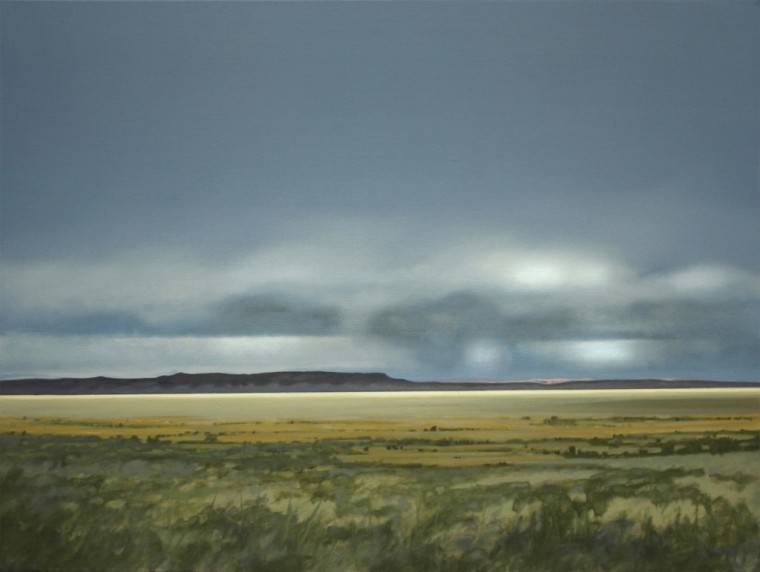 Marilyn Higginson, Virga Across the Alvord, Oil on Wrapped Canvas
Marilyn Higginson, Virga Across the Alvord, Oil on Wrapped Canvas
A CASE OF NERVES (After Li Shangyin)
Fall is colder than the moon.
Overhead, huge clouds
tell me snow is coming.
It will be no surprise.
It will wear no disguise.
Monks, seeking comfort,
mutter incantations in their
oriental occupations.
They ignore the signs
in the sky. I watch
the moon slowly die.
Is my life an accident,
for which I must apologize?
As I sip a cup of wine,
I see leaves fall to their deaths
from my maple tree,
tossed in a fierce wind.
_________________
George Freek
Review by Ed Higgins
Li Shangyin is much admired in our era for the imagist impact of his verse (in English translation, of course). Freek’s poem here holds that same precision of concrete, evoked images. The poem’s speaker evokes for us in telling images the coming of Fall that “will wear no disguise” and its coming “will be no surprise.” Yet then Freek does surprise us with his pondering rhetorical question: Is my life an accident,/for which I must apologize? A universal pondering it would seem–for which we all have need for more than occasionally to apologize. I like how Freek ends his poem with a philosophical cup of compensating wine, while juxtaposed with the symbolic notion of the I-speaker’s reflection that as with Fall’s leaves we are tossed in a fierce wind. As indeed we are in life’s observed accident.
Review by Jared Pearce
The contrast between nature and human is compelling for me, and is certainly key to this poem. Early in the poem, nature will do what it will do: cold, cloud, snow. At the same time, the humans (monks and speaker) do what humans do: seek comfort (possibly a change of them selves or their environment that will support their desires), either in what might be called formal meditation (the monks) or in a philosophical/existential question: is human life, and the speaker’s in particular, accidental? The answer is not coming from the divine or nature; however, the maple tree gives us a clue: even humans are part of nature, shaken and stirred and stripped just as the tree. That final consideration—stark, real—offers, in some ways, some comfort, even if it’s discomfiting. Either way, I enjoy the quietness, the fine imagery, the lyric honesty of the poem.
